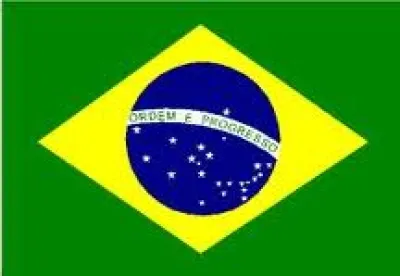NATIONAL DEVELOPMENTS
Brazil Ministry of Environment Requests Proposals For Development of Pharmaceutical Take-Back Program
On October 14, 2013, Brazil’s Ministry of the Environment (Ministerio do Meio Ambiente, the “Ministry”) issued a public notice (the “Edital”) requesting proposals for the development of a nationwide take-back system for expired or unwanted pharmaceuticals for household use. (Edital, Arts. 1, 2). The Ministry issued the Edital under the authority of Brazil’s 2010 National Solid Waste Policy Law (Lei No. 12305/2010, the “Law”), which requires manufacturers, importers, distributors and retailers to take back and manage their end-of-life products. (Edital, Art. 1).
The Edital invites trade associations to propose plans for the collection and environmentally adequate end-of-life disposal of medications for household use. (Edital, Arts. 2, 4). The plans must set forth a proposal for each stage of the take-back system. This includes proposals for: collecting and transporting discarded medicines, preventing the reuse or adulteration of discarded medicines, disseminating information regarding the take-back program, and adequately disposing of discarded medicines in an environmentally sound manner. (Edital, Art. 6). The Edital sets forth yearly targets for the number of cities covered by the take-back program, the percentage of the population targeted, the number of collection locations, and the monthly and yearly volume of collected waste. (Edital, Art. 6.8). Manufacturers, importers, distributors and sellers of medications for household use will be responsible for the plan’s implementation. (Edital, Art. 1).
Reference Source (in Portuguese):
Re-Registration Period for Brazil’s Federal Technical Registry of Potentially Polluting or Natural Resource-Consuming Activities
July 1, 2013 marked the beginning of the re-registration period in Brazil’s Federal Technical Registry of Potentially Polluting or Natural Resource Consuming Activities (Cadastro Técnico Federal de Atividades Potencialmente Poluidoras e Utilizadoras de Recursos Naturais, “CTF”). Re-registation was mandated by a normative decree (Instrução Normativa No. 6, “NI 6”) issued by Brazil’s environmental enforcement agency, IBAMA. Pursuant to NI6, re-registration on the CTF is required of all companies dedicated to (i) potentially polluting activities or activities that use natural resources; (ii) the extraction, production, transportation or sale of products which are potentially harmful to the environment; or (iii) the extraction, production, transportation or sale of animal or plant products or sub-products. (Art. 10).
The re-registration period ended on September 30, 2013 for large companies (companies with 2012 earnings equal to or greater than R$ 12 million) and will end on December 31, 2013 and February 28, 2014 for medium-sized companies (companies with 2012 earnings between R$ 3.6 million and R$ 12 million) and small companies (companies with 2012 earnings of $3.6 million and below), respectively. A failure to re-register will result in blocked access to all systems managed by IBAMA. Re-registration may be performed on IBAMA’s website:http://servicos.ibama.gov.br/index.php/recadastramento-no-ctf.
Reference Source (In Portuguese):
Ethanol Tax Credit Incentives Signed Into Law
On September 10, 2013, Brazilian President Dilma Rousseff signed Law No. 12,859 (the “Law”), which provides tax credits to producers and importers of ethanol for any ethanol sales made within Brazil. (Art. 1). The tax credits apply retroactively, beginning May 7, 2013 and remaining valid until December 31, 2016. (Art. 1, §§ 1, 2, 5). The credits will be assessed based on ethanol sales volume within the Brazilian market. (Art. 1). Pursuant to the Law, for each cubic meter of ethanol sold on or after September 1, 2013, a credit of R$ 21.43 (approximately US$10) will apply to any “PIS/PASEP” taxes (unemployment fund taxes) owed, and a credit of R$ 98.57 (approximately US$ 49) will apply to any “COFINS” taxes (social security taxes) owed by the selling entity. (Art. 1, § 2). For sales of ethanol from May 7, 2013 through September 1, 2013, the credits applicable to PIS/PASEP and COFINS taxes are R$ 8.57 and $39.43, respectively. (Art. 1, § 2). Ethanol resellers are not covered by the Law. (Art. 1, § 4).
Reference Source (in Portuguese):
-
The Law is available in Portuguese at:http://www.receita.fazenda.gov.br/Legislacao/leis/2013/lei12859.htm.
Brazilian Standards & Norms Institute Issues Draft Television Standards
On August 6, 2013, Brazil’s Standards & Norms Institute (Instituto Nacional de Metrologia, Qualidade e Tecnologia, “Inmetro”) issued a draft of its Technical Regulations on Television Quality (Regulamento Tecnico da Qualidade Para Televisores, Portaria 393/2013, the “Draft Regulations”). The Draft Regulations set forth safety and energy efficiency standards for all cathode ray tube, plasma, liquid crystal display, and light emitting diode televisions with screen sizes of 13 inches and 65 inches. (Arts. 1, 5). Among other things, the Draft Regulations prescribe standards for labeling, radiation protection, equipment heating, component safety, and fire resistance. (Art. 5). In addition, the Draft Regulations set forth criteria for the assessment of television energy efficiency in “on” and “standby” modes. (Art. 5.1, Annex B, Annex C).
The Draft Regulations were subject to a 60-day public comment period beginning on August 8, 2013. (Draft Regulations, Preamble, Art. 2). Final regulations will be issued by Inmetro following its incorporation of relevant public comments into the Draft Regulations. (Preamble, Arts. 4, 5).
Reference Sources (in Portuguese):
Brazilian Environmental Enforcement Agency Modifies Waste Import Rules
On July 17, 2013, Brazil’s environmental enforcement agency, IBAMA, issued a normative decree (Instrução Normativa No. 12, de 16 de Julho de 2013, “NI 12”) banning the import of certain types of wastes and limiting the import of others. NI 12 generally reconciles the waste import restrictions set forth in Resolution 452 (issued in 2012 by Brazil’s National Environmental Counsel, CONAMA) with the prescriptions of the Basel Convention on the Control of Transboundary Movements of Hazardous Wastes and Their Disposal (“Basel Convention”). (Art. 1) Like Resolution 452, NI 12 prohibits the import of hazardous wastes, wastes which cannot be recovered or recycled, used tires, and residential wastes. (Art. 3). Going beyond Resolution 452, NI 12 adopts a technical standard created by the Brazilian Technical Norms Association (ABNT NBR 10004) for the classification of hazardous wastes, (Art. 1), and explicitly prohibits certain listed wastes from importation. (Annex V). NI 12 also requires IBAMA authorization for the import of certain listed “controlled wastes,” in accordance with the notice-and-consent procedures set forth in the Basel Convention.
Reference Sources (in Portuguese):
STATE DEVELOPMENTS
Sao Paulo Publishes New Effluent Toxicity Testing Guidelines Document
On September 13, 2013, Sao Paulo’s environmental enforcement agency CETESB published a manual entitled “Ecotoxic Control of Liquid Effluents in Sao Paulo State” (Controle Ecotoxicologico de Efluentes Liquidos No Estado de Sao Paulo, the “Manual”), setting forth guidelines for testing the toxicity of liquid effluents in Sao Paulo State. The Manual describes legal effluent toxicity limits, sets forth standards for capture and preservation of effluent samples, describes State-approved methods for the testing of effluent samples, and provides guidelines for the assessment of the ecological effect of toxic effluents. The Manual accounts for the new national toxic effluent standards enacted in May 2011 by the Brazilian Ministry of the Environment (Ministerio do Meio Ambiente) pursuant to Resolution 430/2011 (Resolucao 430, de 13 de Maio 2011).




 />i
/>i

